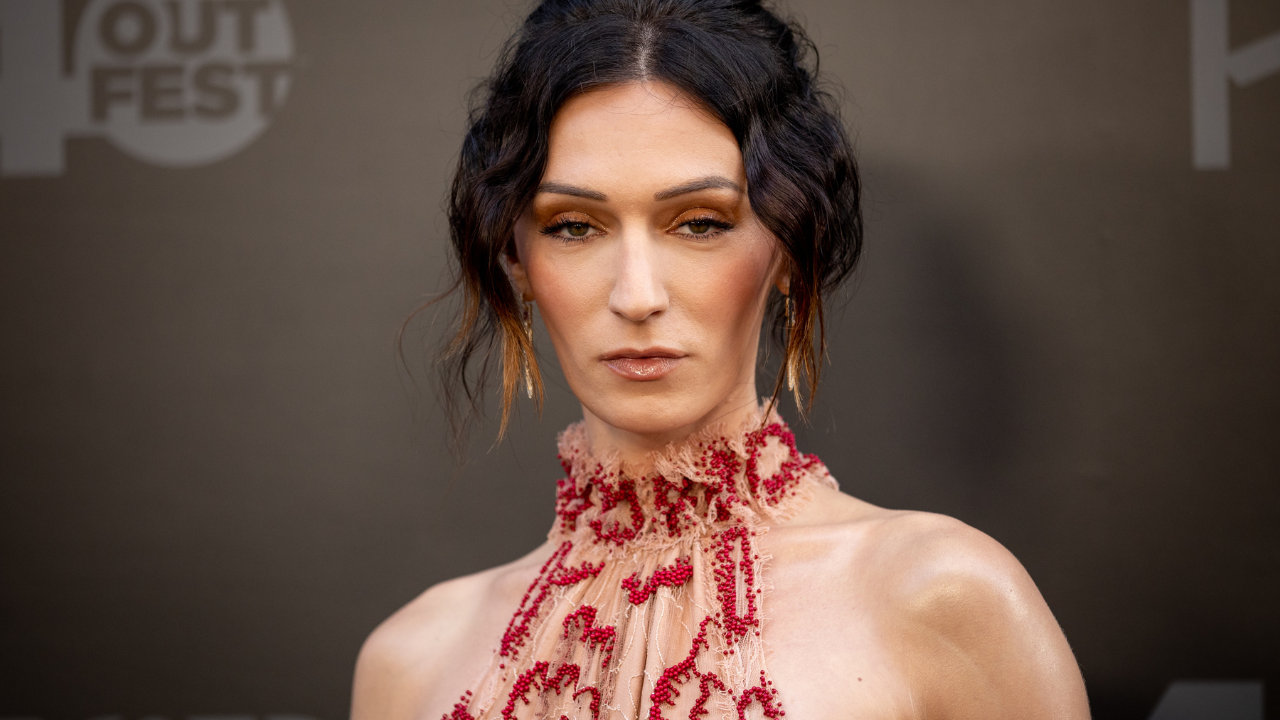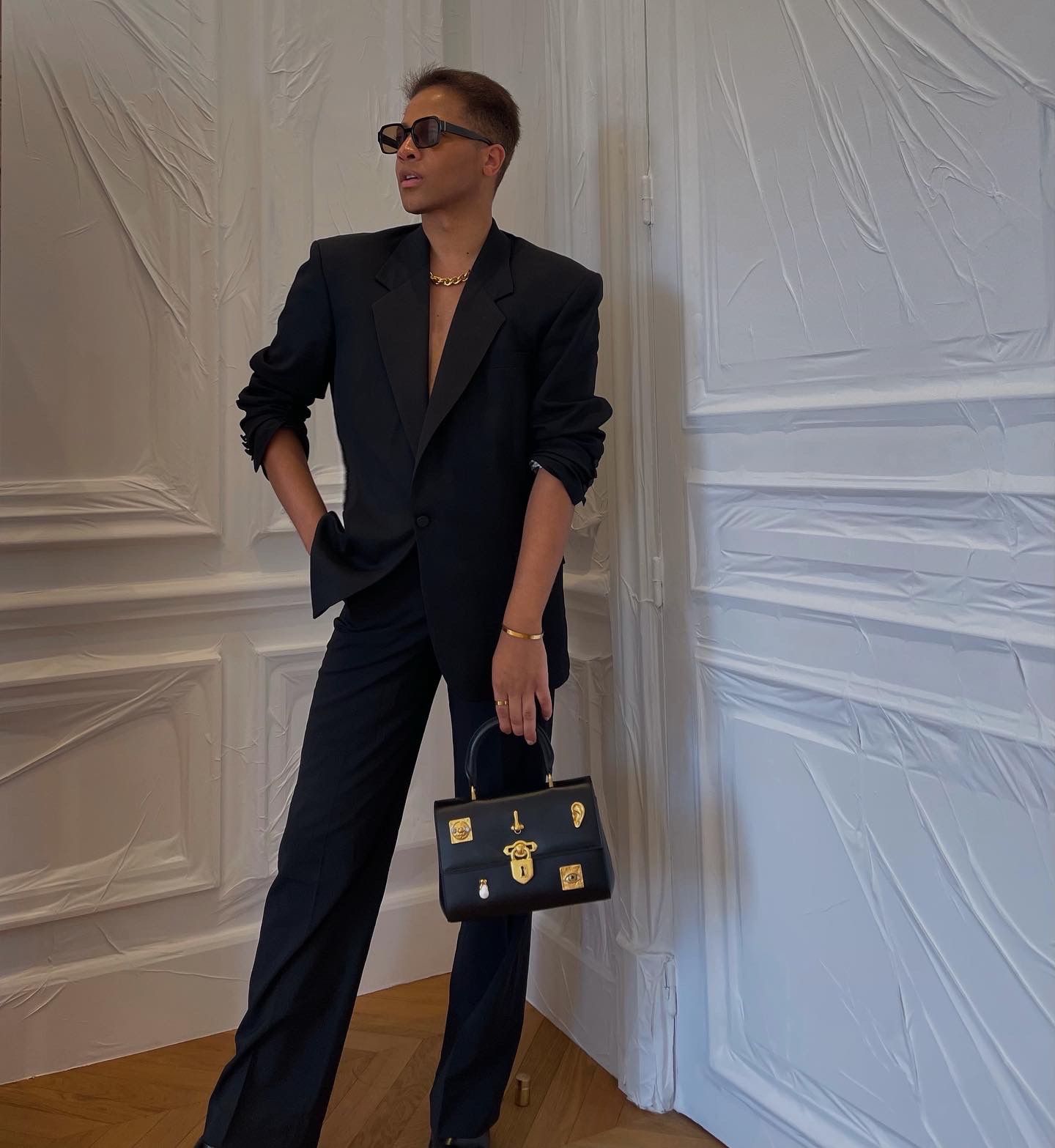

Queer as Folk has returned to television screens for a refreshing new reboot, bringing the 1999 British original into modern times with its realistic approach. The first American remake of the show in 2000 on Showtime was groundbreaking for showcasing teens exploring their queer sexuality and relationships at a time when the conversation wasn’t as open on the topic as it is today. However, the show still lacked diversity with the majority of the characters being cis gay white men. The latest reboot on Peacock, developed by Stephen Dunn, brings the show fully into current times with a diverse cast of queer and trans characters with varied personal stories in New Orleans.
Following the premiere of Queer as Folk during Pride Month, GRAZIA USA caught up with actress Jesse James Keitel, who plays Ruthie, to discuss how she felt stepping into this pivotal role, important conversations the show brings to the table, and where we can see the actress next.
GRAZIA USA: What is an issue the LGBTQIA+ community is facing that many people might not know about?
Jesse James Keitel: Trans rights 1000%, our community is being attacked right now and it’s an important message we sadly aren’t hearing much about compared to all the other issues the community faces.
G: Do you feel a responsibility to tell this story? What did it take to step into that confidence to really take this platform and be kind of one of those first voices in mainstream media to be able to represent this?
JJK: I think walking through the world as yourself is harder than playing a fictional version of it. It took me a long time to get to where I am in my real life and so getting to show a small sliver of my own humanity on TV, I feel a profound responsibility to breathe life into that. If people can fall in love with me and the characters I play on TV, they can fall in love with the real life trans people in their everyday lives. I definitely feel a responsibility to highlight the stories that aren’t necessarily being highlighted in a way that’s truthful and impactful.
G: What important conversations do you think this show brings to the table?
JJK: Getting to see Ruthie navigating motherhood. Queer people often have a long, arduous, expensive journey to become parents and specifically seeing a trans woman with her non-binary partner struggling to relate to each other in this big momentous part of their lives is interesting. Ruthie’s not ready to be a parent and we never really get to see queer people afforded a story like that. She stumbles her way into accepting it and we learn that motherhood and parenthood is tied directly to her gender dysphoria and body dysmorphia. We really get to see her accept her place as a mother and it’s a big, huge moment for her. A big step in her transition that she didn’t realize she needed to take.
But other things that I’m excited that we get to show are we talk a little about the effects of HRT. Why Ruby in order to become a parent also needed a donor. How HRT and transition affects your perception of your body and other people’s perception of your body. I have a full frontal sex scene with my trans partner and seeing a trans woman’s body displayed without shame, without being fetishized and in a way that’s sexy, emotional and empowering is something I’m infinitely proud of. Also, seeing a gay man who professes his feelings for Ruthie as a trans woman. She has a line in one of the earlier episodes that says she’s a woman of fine experience. That’s a statement that I find true to my own lived experience and us getting to explore a relationship in some way, shape or form with a man who identified as gay and a trans woman is really nuanced, and complicated and something I’ve also had to deal with in my own life. We give straight cis people the flexibility to explore their sexuality, but we don’t really give a lot of gay people the same freedom and that’s something I’m very proud of.
The show also highlights got people of different disabilities exploring sex lives and fulfilling romances and people of different races, and trans statuses and at different places in transition and coming to terms with their sexuality at different ages. It’s a lot all wrapped up in our queer little show.
G: Yeah. I mean, it’s amazing and it’s a great representation for the younger generation, but also the generation that really hasn’t had that before. So it speaks to people of all different generations, all different values. More on the personality side, do you identify with any personality traits that of your characters in any capacity?
JJK: Oh 100%. Ruthie is so funny, I definitely think I’m funnier than I really am, but I love that her sense of humor is so dry and kind of sharp. I like to think mine is too, but she’s also really silly and gets to just goof around with Brodie. Devin Way has quickly become one of my closest friends I’ve ever had. So all of our moments on screen together where we’re just 50 shades of chaos is literally just us in our pure Gemini catastrophe. It’s so organic and fun.
G: What is next for you, for the show? Anything exciting that fans should keep their eye out for?
JJK: Yes. Well, I also just made my Star Trek debut. She’s a villain baby! I also just landed a role I will be starting in a few weeks that I’m very excited to talk about one day soon that is just very cool.














